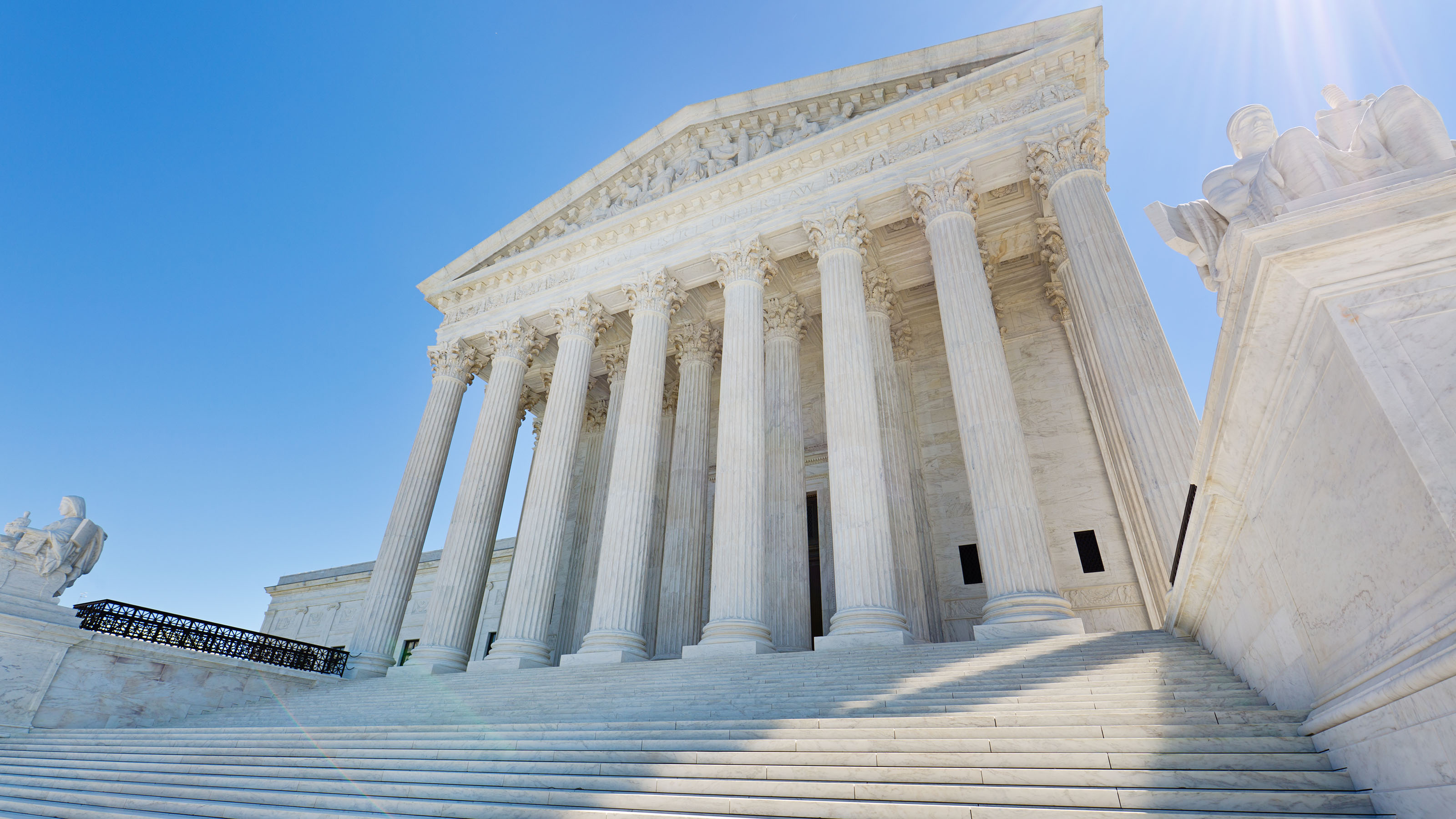Should Abortion Foes Block Health Bill?
Abortion opponents in the House need to decide what their real goal is.

Profit and prosper with the best of Kiplinger's advice on investing, taxes, retirement, personal finance and much more. Delivered daily. Enter your email in the box and click Sign Me Up.
You are now subscribed
Your newsletter sign-up was successful
Want to add more newsletters?

Delivered daily
Kiplinger Today
Profit and prosper with the best of Kiplinger's advice on investing, taxes, retirement, personal finance and much more delivered daily. Smart money moves start here.

Sent five days a week
Kiplinger A Step Ahead
Get practical help to make better financial decisions in your everyday life, from spending to savings on top deals.

Delivered daily
Kiplinger Closing Bell
Get today's biggest financial and investing headlines delivered to your inbox every day the U.S. stock market is open.

Sent twice a week
Kiplinger Adviser Intel
Financial pros across the country share best practices and fresh tactics to preserve and grow your wealth.

Delivered weekly
Kiplinger Tax Tips
Trim your federal and state tax bills with practical tax-planning and tax-cutting strategies.

Sent twice a week
Kiplinger Retirement Tips
Your twice-a-week guide to planning and enjoying a financially secure and richly rewarding retirement

Sent bimonthly.
Kiplinger Adviser Angle
Insights for advisers, wealth managers and other financial professionals.

Sent twice a week
Kiplinger Investing Weekly
Your twice-a-week roundup of promising stocks, funds, companies and industries you should consider, ones you should avoid, and why.

Sent weekly for six weeks
Kiplinger Invest for Retirement
Your step-by-step six-part series on how to invest for retirement, from devising a successful strategy to exactly which investments to choose.
In the end, it will come down to abortion. A year of heated debate on a health care bill -- and decades of earlier efforts -- will all hinge on the votes of a handful of House Democrats who believe they must take a strong stand to discourage or prevent as many abortions as possible.
This may well be a noble goal -- I’ll try to leave that debate for others -- but the hard truth is that voting against the health care bill over the abortion issue makes no sense. It won’t prevent a single abortion from taking place. In fact, it may well have the opposite of the intended effect, causing the country to miss out on a move that really will lead to fewer abortions.
The anti-abortion Democrats who are threatening the health bill, about a dozen strong, are led by Rep. Bart Stupak of Michigan. They succeeded in winning language in the House-passed health bill that prevents any woman from using her own money to buy health insurance that covers an abortion if the plan accepts any other enrollees who are using taxpayer-subsidized funds. She would have to buy a separate rider, which no insurer is likely to offer.
From just $107.88 $24.99 for Kiplinger Personal Finance
Become a smarter, better informed investor. Subscribe from just $107.88 $24.99, plus get up to 4 Special Issues

Sign up for Kiplinger’s Free Newsletters
Profit and prosper with the best of expert advice on investing, taxes, retirement, personal finance and more - straight to your e-mail.
Profit and prosper with the best of expert advice - straight to your e-mail.
The Senate refused to go quite that far, though it went plenty far. The Senate bill that Stupak and others refuse to vote for because it’s “too lenient” bans the use of federal subsidies to pay for abortion services. It also allows any state to ban insurers from providing abortions on the newly created exchanges. If a plan does offer abortion coverage, any woman who wants it (not just those getting tax subsidies) would have to provide a separate check each month to her insurer to cover the abortion services. This would be an extremely cumbersome procedure, not only for the woman, but also for the insurer. So cumbersome, in fact, that no insurer would offer the coverage. That is exactly what has happened in states that allow separate abortion riders under similar conditions. No one even asks for a separate rider because no woman ever plans in advance to have an abortion.
Stupak has repeatedly mischaracterized the Senate bill, saying it would allow federal funding of abortions. That is not the case, and several fact checkers have pointed that out. In fact, the Senate language has been endorsed by pro-life Democrats in that chamber (Ben Nelson of Nebraska and Bob Casey of Pennsylvania), by some pro-life groups and by groups representing Catholic Bishops. But it’s not good enough for the handful of House Democrats who seem intent on a game of one-upmanship that is as much politics as policy. Stupak, in fact,
But I digress. The point is that both the Senate and the House language would have the same practical effect – they would mean no coverage of abortion procedures for women getting insurance through the new exchanges. (Most employer-provided coverage includes abortion services, but they’re beyond the reach -- so far -- of Stupak and others.)
Amidst this splitting of hairs comes an interesting contribution to the debate from T.R. Reid, who has spent the better part of a decade comparing and evaluating health care options in the U.S. and abroad. In an op-ed article in The Washington Post, Reid argues that if abortion is the main concern, there’s a strong case for passing the bill because increasing access to health care is the most powerful tool for reducing the number of abortions. Reid cites United Nations data showing that the U.S. has one of the highest abortion rates of any industrialized country -- not because the U.S. is any less pro-life, but because so many Americans lack access to affordable health care. Cardinal Basil Hume, the former Catholic prelate of England and Wales, told Reid that he attributes Britain’s lower abortion rate to the U.K.’s universal health care system. “If that frightened, unemployed 19-year-old knows that she and her child will have access to medical care whenever it’s needed,” Hume told Reid, “she’s more likely to carry the baby to term. Isn’t it obvious?”
Yes, in a word, it is. There may be many reasons to oppose the health care legislation that President Obama is pushing, but arguing that it’s not tough enough on abortion shouldn’t be one of them. Those who really want to lower the abortion rate need to give Hume’s argument some serious thought.
Profit and prosper with the best of Kiplinger's advice on investing, taxes, retirement, personal finance and much more. Delivered daily. Enter your email in the box and click Sign Me Up.

-
 How Much It Costs to Host a Super Bowl Party in 2026
How Much It Costs to Host a Super Bowl Party in 2026Hosting a Super Bowl party in 2026 could cost you. Here's a breakdown of food, drink and entertainment costs — plus ways to save.
-
 3 Reasons to Use a 5-Year CD As You Approach Retirement
3 Reasons to Use a 5-Year CD As You Approach RetirementA five-year CD can help you reach other milestones as you approach retirement.
-
 Your Adult Kids Are Doing Fine. Is It Time To Spend Some of Their Inheritance?
Your Adult Kids Are Doing Fine. Is It Time To Spend Some of Their Inheritance?If your kids are successful, do they need an inheritance? Ask yourself these four questions before passing down another dollar.
-
 Is a New $25,000 Health Care Tax Deduction Coming in 2026?
Is a New $25,000 Health Care Tax Deduction Coming in 2026?Tax Policy A proposal from GOP Sen. Josh Hawley adds to the chatter about health care affordability.
-
 Money for Your Kids? Three Ways Trump's ‘Big Beautiful Bill’ Impacts Your Child's Finances
Money for Your Kids? Three Ways Trump's ‘Big Beautiful Bill’ Impacts Your Child's FinancesTax Tips The Trump tax bill could help your child with future education and homebuying costs. Here’s how.
-
 Key 2025 Tax Changes for Parents in Trump's Megabill
Key 2025 Tax Changes for Parents in Trump's MegabillTax Changes Are you a parent? The so-called ‘One Big Beautiful Bill’ (OBBB) impacts several key tax incentives that can affect your family this year and beyond.
-
 Will EVs Drive the Vote in Election 2024 Swing States?
Will EVs Drive the Vote in Election 2024 Swing States?Tax Credits Electric vehicle tax credits have somehow become controversial. So car buyer attitudes in swing states might make a difference.
-
 How Four Recent Supreme Court Rulings Impact Your Money
How Four Recent Supreme Court Rulings Impact Your MoneySupreme Court Some U.S. Supreme Court decisions could affect your finances. Here’s what you need to know.
-
 Are Student Loans Being Forgiven or Not?
Are Student Loans Being Forgiven or Not?Student Loans The House and Senate voted to repeal President Biden’s student loan forgiveness plan, but does it even matter?
-
 Etsy, eBay, PayPal Want IRS 1099-K Relief for Online Sellers
Etsy, eBay, PayPal Want IRS 1099-K Relief for Online SellersIncome Tax Companies like eBay, Etsy, and PayPal want Congress to raise the $600 reporting threshold for IRS Form 1099-K to give relief to millions of sellers who use their sites.
-
 Student Loan Forgiveness Blocked For Now Due to Court Rulings
Student Loan Forgiveness Blocked For Now Due to Court RulingsBiden's student loan debt forgiveness program is on hold until the U.S. Supreme Court weighs in.